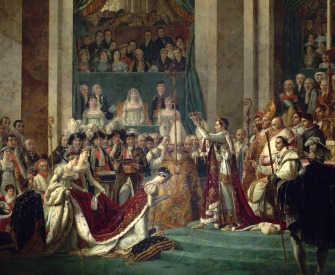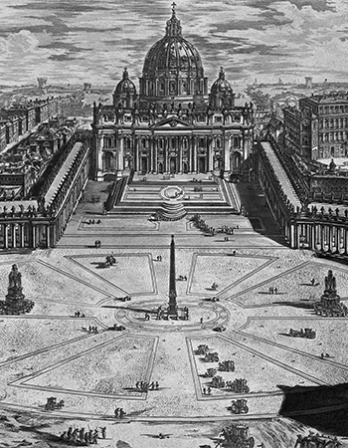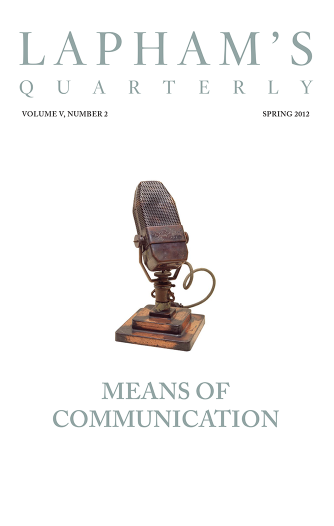To ask or search I blame thee not for heav’n
Is as the book of God before thee set
Wherein to read His wondrous works, and learn
His seasons, hours or days or months or years.
This to attain, whether heav’n move or earth,
Imports not if thou reckon right. The rest
From man or angel the Great Architect
Did wisely to conceal and not divulge
His secrets to be scanned by them who ought
Rather admire. Or if they list to try
Conjecture He His fabric of the heav’ns
Hath left to their disputes perhaps to move
His laughter at their quaint opinions wide
Hereafter when they come to model heav’n
And calculate the stars, how they will wield
The mighty frame, how build, unbuild, contrive
To save appearances, how gird the sphere
With centric and eccentric scribbled o’re,
Cycle and epicycle, orb in orb.
Already by thy reasoning this I guess,
Who art to lead thy offspring, and supposest
That bodies bright and greater should not serve
The less not bright nor heav’n such journeys run,
Earth sitting still when she alone receives
The benefit. Consider first that great
Or bright infers not excellence: the earth
Though in comparison of heav’n so small,
Nor glistering, may of solid good contain
More plenty than the sun that barren shines,
Whose virtue on itself works no effect
But in the fruitful earth. There first received
His beams, unactive else, their vigor find.
Yet not to earth are those bright luminaries
Officious but to thee earth’s habitant.
And for the heav’n’s wide circuit: let it speak
The Maker’s high magnificence who built
So spacious and His line stretched out so far
That Man may know he dwells not in his own,
An edifice too large for him to fill,
Lodged in a small partition, and the rest
Ordained for uses to his Lord best known.
The swiftness of those circles áttribute,
Though numberless, to His omnipotence,
That to corporeal substances could add
Speed almost spiritual. Me thou think’st not slow
Who since the morning hour set out from Heav’n
Where God resides and ere mid-day arrived
In Eden, distance inexpressible
By numbers that have name. But this I urge,
Admitting motion in the heav’ns, to show
Invalid that which thee to doubt it moved,
Not that I so affirm, though so it seem
To thee who hast thy dwelling here on earth.
God to remove His ways from human sense
Plac’d heav’n from earth so far that earthly sight
If it presume might err in things too high
And no advantage gain.
From Paradise Lost. The poet served as the Secretary of Foreign Tongues in Oliver Cromwell’s Commonwealth before glaucoma deprived him of his sight. In the wake of Cromwell’s death in 1658, Milton began to write his epic poem justifying “the ways of God to man.”
Back to Issue





